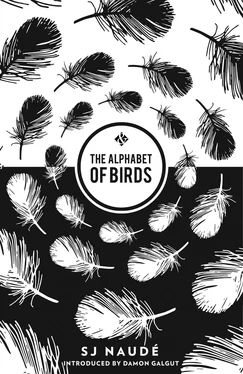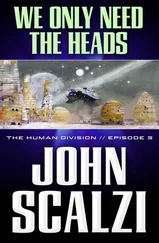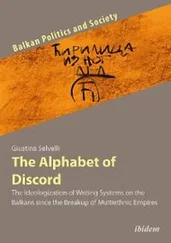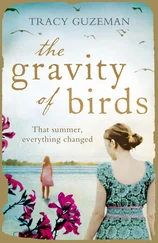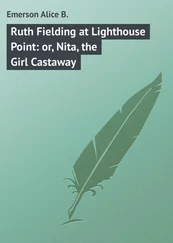Since Hisashi’s meal in the garden, she has not eaten again. The era of food has passed.
‘I would love an ice-cold glass of lemon syrup.’
He drives from one cottage-industry shop to another. At last he finds home-made syrup with bits of lemon peel floating in it. He fills a rippled glass with ice, dripping syrup over the cubes and diluting it with water. She takes a sip, or rather, dips the tip of her tongue. The nausea overwhelms her. She falls back, trembling, with a weak, apologetic smile.
Water is his last hope.
‘Tap water has a metallic aftertaste,’ she says.
He goes out to buy her carbonated water of various brands. He serves it with a few strawberries, cut in half and sprinkled with sparkling grains of sugar — not to eat, but to reflect in the bubbles and lend colour to the water. He holds it to her lips. She throws up. She reckons it is the carbon dioxide. He goes out to buy still water. She does not hold that in either. The last line of defence falls.
It is night-time. He is by her side. He has difficulty staying awake — he keeps the overhead light on to create the illusion of daylight. Earlier, the pain was so intense that she bared her shoulder for a new morphine plaster: 75 micrograms. She is now travelling freely between sleep and wakefulness; the border fence has been removed. Boundaries between his mother and himself are fading too. He no longer knows which side he is on. He has been concentrating so long on feeling the illness in his own body. He wanted to become the perfect echo chamber. Wanted to be her from the inside, to make her pain entirely his own. But as soon as he thinks he is approaching the slippery mass of the pain, he looks in her eyes, sees how far ahead of him she is. Her boundaries have shifted unimaginably. He must now give up.
Even so, he cannot. This is what he now asks for in a prayer, the first in years: drive out the evil. Let it enter me. Make me the host, like a possessed swine from Gadara. Or it might be a moment of perfect beauty that sucks the evil out of her. No matter how hard he has to search, or how far or randomly he has to travel, find it he will.
His chin touches his chest, he cannot stay awake. She is whispering something. Or he thinks she is whispering. He brings his ear closer. Nothing. There are times, especially at night, when he wonders whether she will ever say anything again, whether she can still speak. He is able to measure what he has left of her in two ways: in days or in the number of sentences she will still utter. She is moving, she wants to go to the bathroom. He didn’t think anything was being processed any longer. She shakes her head at the bedpan offered to her. She wants to get up. There is a remnant of will, a welling up of insistence. He clasps his arms around her chest, under her arms. He walks with her, an endless journey to the toilet. Or no, he is the only one touching the ground; carrying her. Her feet and arms are are rowing in the air, slowly and weightlessly. His mother the water-treader: she thinks she is walking, but she is swimming towards the light. He lowers her over the porcelain bowl. A few drops of urine, the colour of a forest pond.
On the way back, her resistance hardens. She extends an arm, struggling towards the door. ‘I’m leaving now,’ she says, and he knows immediately: it is the last sentence.
Everything that she still has left is invested in the refusal — the force of a raging crowd.
‘Please,’ he begs, ‘please lie down instead.’
Initially he thinks it is the medication that is befuddling her, but when he looks her in the eye, he sees that she knows and means what she is saying. He has to apply coercion to get her under the sheets.
She slips away and he too slumbers in a chair by the bed, leaning forward, his head against her feet. In a dream he sees her against a slippery cliff. She is pulling herself up with great effort, on a rope with forty-nine knots. He wakes up when a raspy sigh escapes her. Like a gust of wind flipping through the pages of an open book forgotten on a summer lawn. The pages rustle and turn to the last word.
Hisashi’s visits are unpredictable. Sometimes short, sometimes long, any time of the day. Sometimes twice a day, sometimes not at all. Hisashi watches critically when the oncologist arrives to set up a mechanical syringe driver. The needle goes into her chest. The plastic tube is filled with an amber-coloured mixture of morphine and sedatives. The little machine is wound up and placed on her pillow. It ticks like a bomb while slowly forcing fluid into her. When the oncologist has left, he pushes Hisashi aside gently. He feels his mother’s pulse and, with his other hand, his own. Elsewhere in the house, the wall clock is chiming more slowly by the hour. It has not been wound for at least a week. Like metronomes running down at different speeds, all these rhythms, the interrelationships between intervals increasingly complex.
Hisashi is doing his little things: sometimes he just stands looking at her for a long time, talks at her in jolly Japanese, cooks something, becomes engrossed in some incomprehensible little ritual. On the whole he is ignoring Hisashi. He now often sits outside, in the rosy light filtering through the red chestnut leaves. He observes the white bed through the window. He writes in his journal. This is how he thinks of the writing: he is trying to give texture to the surface of a strange planet. Perhaps this will enable him to start exploring the textures around him, the most mysterious of all surfaces. Often, when he is writing in the garden, Hisashi sits or strolls near him, stealing glances at him. He still has no idea what Hisashi thinks his role here might be.
The morphine mixture is now draining all movement from her limbs. She is slipping into a semi-coma. Even Hisashi, during his unexpected visits, can hardly make her stir. He scatters small winter flowers from her bed to the veranda door, out across the veranda and in a winding path through the garden.
‘What are you doing, Hisashi?’
‘It’s a route; I’m encouraging her to walk again.’
Hisashi keeps walking and tossing flowers.
‘Look after yourself,’ Hisashi says from where he has stopped at the end of the flower trail, only a few left in his hand. ‘You’re becoming a ghost too. You must follow the path yourself.’
For an hour Hisashi watches him intently as he writes at the steel-mesh table. He does not look up, just clenches his teeth ever more tightly. At last Hisashi averts his gaze.
‘I’m flying back this weekend. I’m going to confirm my flight for Saturday morning.’
The blind fear entering his heart catches him entirely off guard. He knows very well he only has to say a word and Hisashi will stay. But he cannot.
No, he will test Hisashi. Saturday, when the morning sun starts falling into his mother’s bedroom, he will throw open the front and veranda doors. He will go and stand in front of her cupboard. He will take out one of her nightgowns and put it on. In her bedroom he will smear a daub of make-up on his face. Then he will lie down next to her, there under the white sheets, and curl up like a monkey. Their faces turned to each other, eyes open, everything in perfect symmetry. In silence they will wait for Hisashi. To come and care for them. To come and feed them like a mother feeds her twins: a spoonful for him, and then a spoonful for her.
And if Hisashi does not come? Then no one would have to refuse, or threaten to refuse, ever again. He will see to it that his desiccation and departure coincide with his mother’s. The leaves will blow in through the doors. The garden birds will fly in and whirl around their heads, will write an ending on them. Sharing a boat, they will row through to the secret lake. With a white flag at the bow.
Читать дальше
